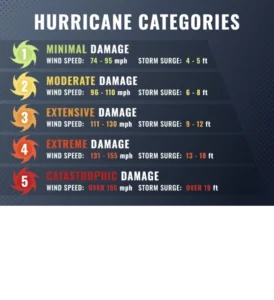Soft vs Hard Credit Inquiry: What’s the Difference?
 In order to make a well-informed decision when considering a new tenant, a landlord needs all of the information available about that applicant. His resources can include a history of past addresses and evictions, identity theft or a record of passing bad checks. Are they a sex offender or a criminal? All vital information when you are handing over the keys to your investment property.
In order to make a well-informed decision when considering a new tenant, a landlord needs all of the information available about that applicant. His resources can include a history of past addresses and evictions, identity theft or a record of passing bad checks. Are they a sex offender or a criminal? All vital information when you are handing over the keys to your investment property.
But the most basic piece of information the landlord needs comes from the tenant credit check. Has the applicant been put in collection? Do they honor their financial obligations by paying their bills in a timely manner? Are they drowning in debt or spending too close to their credit limit?
As important as the data included in the rental credit report is, the landlord cannot legally have access to it without the permission of the applicant. Unfortunately, some possible tenants do not want to give permission as they believe pulling a credit report can affect their credit score. This confusion is understandable but can easily be explained away to the tenant.
In the financial world, there are “soft pulls” and “hard pulls.” Soft inquiries are done by creditors to provide preapproved offers. Hard pulls are done by creditors and lenders when a person applies for credit or a loan. The hard inquiry will negatively affect one’s credit history while the soft one will not.
Soft Pull
When you run an AAOA landlord credit check as part of a tenant screening, it is considered a soft pull, which will not affect a credit score. This is because the landlord is looking to extend a preapproved offer of tenancy to the applicant based on a completed rental application. Landlords should allay any tenant fears by explaining that the AAOA credit screening will be a soft pull. Soft pulls may also occur when an employer runs an employee credit report on a possible new hire or a credit card company wants to see if you qualify for a certain promotional offer. When a person checks their own credit, it is also considered a soft pull. Other soft pulls may include those from insurance quote offers, credit monitoring services, utilities, cable and internet providers and cell phone companies.
When in doubt, the applicant should ask in advance if the inquiry is going to appear as a soft or hard credit check. The soft pulls will appear in a special section of their credit report, but only they can see them. The reason a soft inquiry is not considered by the credit bureaus is that they are not directly associated with a credit application.
Hard Pull
Hard inquiries usually happen when a borrower applies for a mortgage, loan or credit card. The lender will check the applicant’s credit history and enter the review on the account. This hard inquiry may lower the borrower’s credit score by a few points. A single hard inquiry should not raise any red flags or affect the applicant’s ability to be approved for the credit card or loan. In fact, since hard credit checks usually remain on the credit report for about two years and only affect the score for one year, the person’s score should soon recover from the request.
Common hard inquiries include applications for a mortgage, auto loan, credit card or a student or personal loan. A request for a credit limit increase will also be a hard pull.
What actually causes an impact on a score is a number of hard pulls within a short period of time. If it appears that the applicant is having money problems or preparing to accumulate a large debt, lenders and credit card issuers will tend to consider them a high risk. However, they will take into account as an exception multiple pulls within a short time period for a particular type of loan, such as a mortgage, car or student loan, and will group them on the report as a single hard inquiry.
A person’s general credit picture will determine how much a hard inquiry affects their credit score. As a rule, one or two hard inquiries might lower their score by just a few points. Hard inquiries can be disputed only if they occurred without the permission of the subject.
Once a reluctant applicant understands the difference between a soft pull and a hard one, it should be easy for the landlord to obtain their permission to proceed with the rental credit check.













 Accessibility
Accessibility